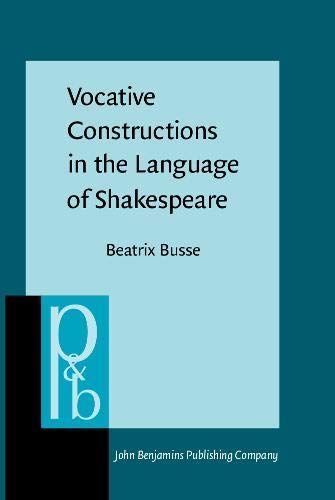
Vocative Constructions in the Language of Shakespeare
This study investigates the functions, meanings, and varieties of forms of address in Shakespeare’s dramatic work. New categories of Shakespearean vocatives are developed and the grammar of vocatives is investigated in, above, and below the clause, following morpho-syntactic, semantic, lexicographical, pragmatic, social and contextual criteria. Going beyond the conventional paradigm of power and solidarity and with recourse to Shakespearean drama as both text and performance, the study sees vocatives as foregrounded experiential, interpersonal and textual markers. Shakespeare’s vocatives construe, both quantitatively and qualitatively, habitus and identity. They illustrate relationships or messages. They reflect Early Modern, Shakespearean, and intra- or inter-textual contexts. Theoretically and methodologically, the study is interdisciplinary. It draws on approaches from (historical) pragmatics, stylistics, Hallidayean grammar, corpus linguistics, cognitive linguistics, socio-historical linguistics, sociology, and theatre semiotics. This study contributes, thus, not only to Shakespeare studies, but also to literary linguistics and literary criticism.